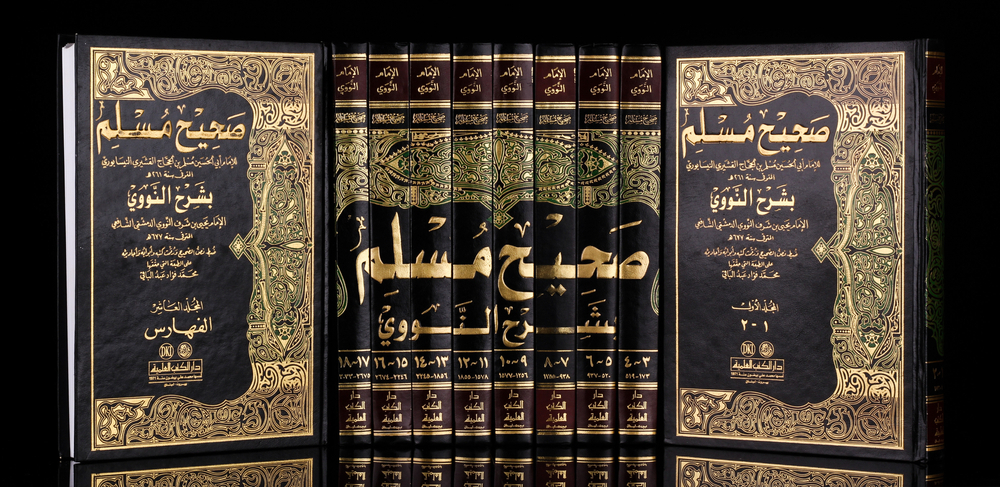What Does Being “Free From Muslims Who Live Among Idolaters” Mean?
Answered by Shaykh Isrhaad Sedick
Question
Jarir Ibn ‘Abdullah (Allah be pleased with him) narrated that the Messenger of Allah (Allah bless him and give him peace) dispatched a military expedition to Khath’am. There, some individuals seeking sanctuary prostrated themselves but were swiftly killed.
Upon receiving this news, the Prophet (Allah bless him and give him peace) ordered that half of the ‘Aql (blood money) be provided for them. He stated, “I am absolved from every Muslim who resides among the idolaters.”
When asked, “O Messenger of Allah, why is that?” He replied, “Their fires should not be visible to each other.” [Abu Dawud; Tirmidhi].
Please elaborate on the implications of this hadith according to the Shafi’i School of thought.
Answer
In the Name of Allah, the Most Merciful and Compassionate. May Allah alleviate our difficulties and guide us to what pleases Him. Amin.
The Hadith speaks to the concept of Muslims living in non-Muslim lands and implicitly encourages not to assimilate people of other faiths.
The primary ruling is that if a person is prevented from practicing their religion in a non-Muslim land, they must migrate to a land where they can practice their religion openly, on the condition that they can migrate.
If they can practice their religion in their city/country, but migrating to another place offers more opportunities to strengthen and practice one’s faith, then hijra is recommended but not obligatory. [Shirbini, Mughni al-Muhtaj]
However, the issue of emigration for the sake of Allah is not so clear-cut or straightforward in today’s world since geographical and political circumstances, as well as the situation of many Muslim countries, make the practical realities of Hijra difficult. Allah knows best.
Interpretation of the Hadith
‘Abdurahman Mubarakpuri says, “I am absolved from every Muslim who resides among the backs of the polytheists.” This is interpreted to apply to those who cannot guarantee the safety of their religion (but there is jihad and intention).
Tibiyy and others said this exception implies that the ruling after it contradicts what precedes it, meaning that the migration, which was a departure of a specific group from one’s homeland to Medina, has ceased, except that migration due to jihad remains, and likewise due to a righteous intention such as fleeing from the land of disbelief, seeking knowledge, and fleeing with one’s religion from trials, with the desired intention in all that (and when you are called to [jihad], then proceed).
Imam Nawawi said it means that the good that was discontinued with the cessation of the Hijra can be achieved through jihad and righteous intention, and when the Imam commands you to go out to jihad and the like of virtuous deeds, you should go out to it. [Tuhfat al-Ahwadhi]
I pray this is of benefit and that Allah guides us all.
[Shaykh] Irshaad Sedick
Checked and Approved by Shaykh Faraz Rabbani
Shaykh Irshaad Sedick was raised in South Africa in a traditional Muslim family. He graduated from Dar al-Ulum al-Arabiyyah al-Islamiyyah in Strand, Western Cape, under the guidance of the late world-renowned scholar Shaykh Taha Karaan (Allah have mercy on him), where he taught.
Shaykh Irshaad received Ijaza from many luminaries of the Islamic world, including Shaykh Taha Karaan, Shaykh Muhammad Awama, Shaykh Muhammad Hasan Hitu, and Mawlana Abdul Hafeez Makki, among others.
He is the author of the text “The Musnad of Ahmad ibn Hanbal: A Hujjah or not?” He has been the Director of the Discover Islam Centre, and for six years, he has been the Khatib of Masjid Ar-Rashideen, Mowbray, Cape Town.
Shaykh Irshaad has fifteen years of teaching experience at some of the leading Islamic institutes in Cape Town). He is currently building an Islamic podcast, education, and media platform called ‘Isnad Academy’ and has completed his Master’s degree in the study of Islam at the University of Johannesburg. He has a keen interest in healthy Prophetic living and fitness.
